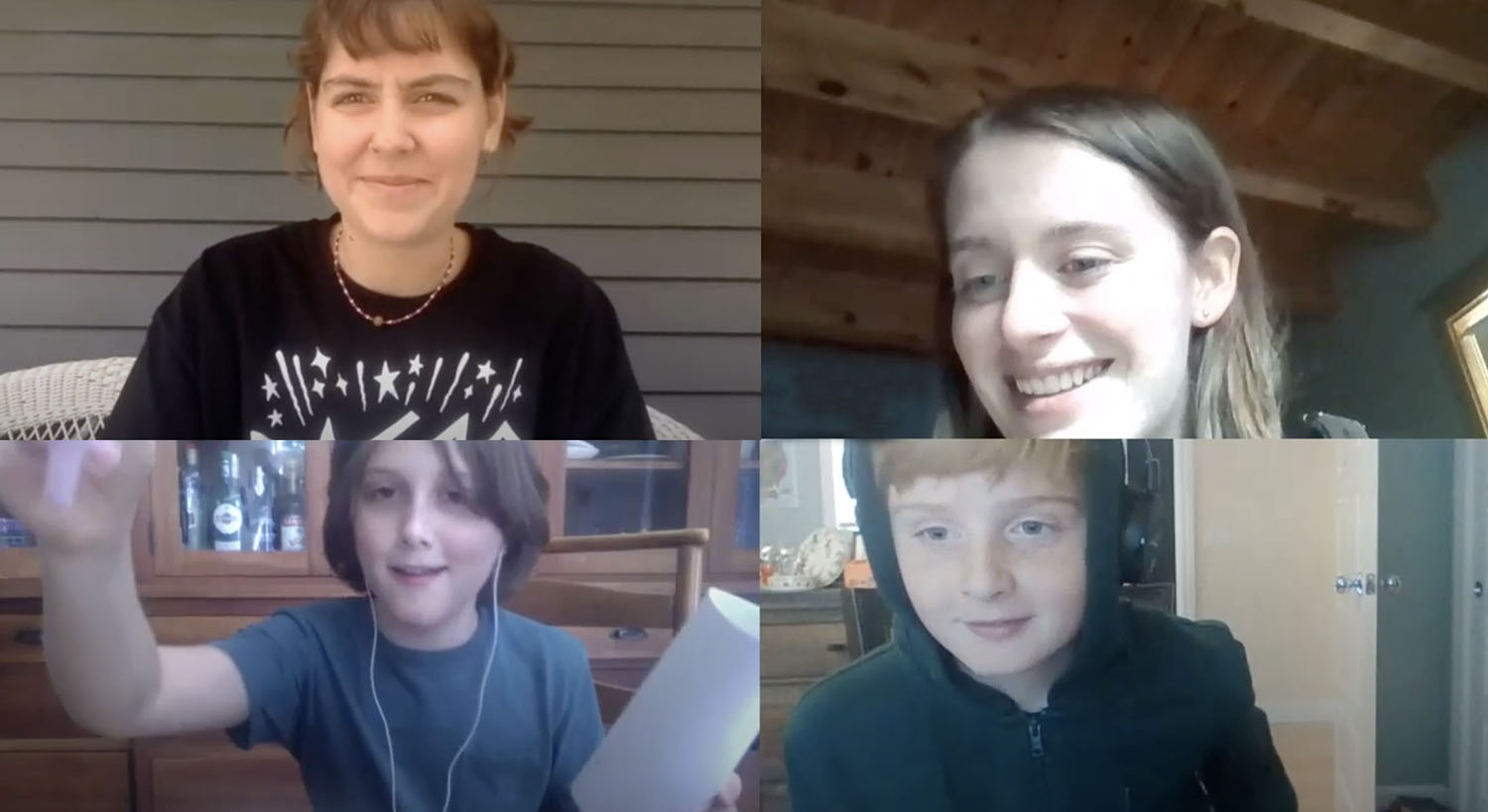Students Launch Fun, Interactive Virtual Program for School-Aged Kids


When hometown friends Michayla Robertson-Pine and Tessa Levenstein found themselves frustrated with online learning at the college level, they suspected school-aged children were also suffering in the world of online education, and that young people were actively looking for fun creative ways to engage with each other socially.
That’s when Wesleyan junior Robertson-Pine ’22 and Amherst College junior Tessa Levenstein ’22 decided to create a remote, project-based, community-oriented program with the intent of spreading joyful learning during the COVID-19 pandemic. Named Tin Can Learners, the program aims to take the load off of parents and offer engaging and energizing after-school and winter-break sessions.
“We felt that if we, as college students, were feeling isolated and lonely, then young kids were probably feeling even worse,” Robertson-Pine said.
The duo reached out to three other like-minded college students, including Wesleyan senior Elizabeth “Liz” Woolford ’21, who collaboratively developed the format of Tin Can. The program was launched in September 2020.
Over the fall, children were able to participate in virtual programs involving animation coding, cooking, nature, music, writing, art portfolio, “Mad Scientist!”, foundations of pre-algebra, fractions and decimals, and Tin Can film festivals on space odyssey or mockumentary themes. Tutoring in regular K-12 classes also was available.
And through the three-week Tin Can Winter Wonderland program, which began Jan. 4, kids are participating in Zoom hide-and-seek, cooking competitions, stationary-making, competitive tic-tac-toe and other online games, a brain-bending live game show, and even a bring-your-pet-to-class day. Also, through Tin Can’s Winter Session Art Portfolio, self-driven artists, writers, and creators are meeting online to pursue the projects they are passionate about, or continue to develop work from past Tin Can sessions.
“Each session we are learning from parents and kids how the landscape of online learning is changing, and are adapting our programming to fit the community’s needs,” said Woolford, who is studying government, theater, and environmental studies at Wesleyan. “We could not be happier with how things have turned out! We have quite a dedicated crew of students who are extremely invested in our silly rituals, bizarre Tin Can lore (Tin Can is powered by magical friendship beans!), fun classes, and spending time with new and old friends.”
Prior to Tin Can, Robertson-Pine, who is majoring in theater and education studies, had worked with children in a variety of roles, including as camp counselor, teaching assistant, swimming instructor, and babysitter. When developing the Tin Can curriculum, she aimed to build a robust and exciting framework for learning that centers around self-expression, community engagement, and passion for learning.
“After running Tin Can for three sessions in the fall, I’m really pleased with how it turned out,” Robertson-Pine said. “We’ve been able to build a community of support and engagement because we’ve had a core group of kids that have signed up for all three sessions. I’ve watched them grow and take ownership over the program and it really feels like it is their space, which is really exciting!”
 Each member of the Tin Can Learners team had taken the fall semester off from college for safety or other reasons.
Each member of the Tin Can Learners team had taken the fall semester off from college for safety or other reasons.
“But none of us were willing to take the leap of leaving unless we had an alternative project that could keep us busy—and employed,” Woolford said. “We spent a fair amount of time doing market research and shopping our programming plan to after-school educators, kids, and parents, and pretty quickly realized that this was quite a viable venture.”
After spending the summer learning how to do all the legal work of setting up a business—complete with bank accounts, websites, etc.—the entrepreneurs decided that regardless of how technically successful they were, “Tin Can would be an extremely valuable learning experience,” Woolford said. “And in the process, we’re a group of five 20-year olds who have learned how to run a small business in the midst of the pandemic!”
Read more about the program in this Daily Hampshire Gazette article.

